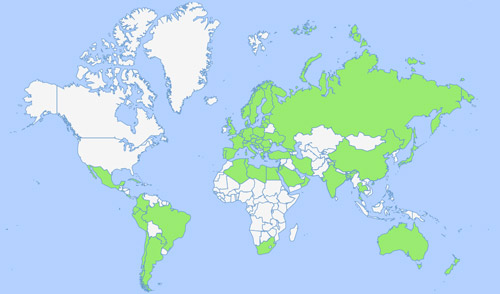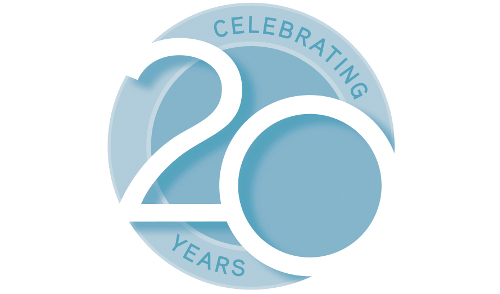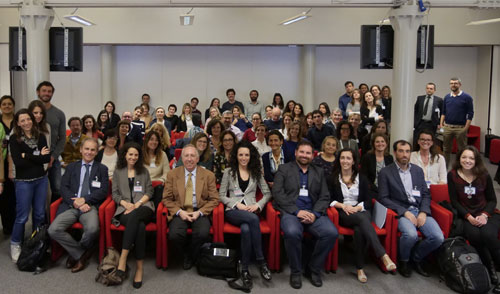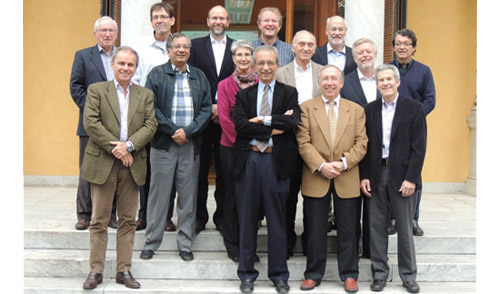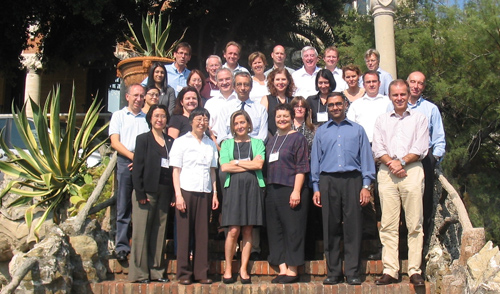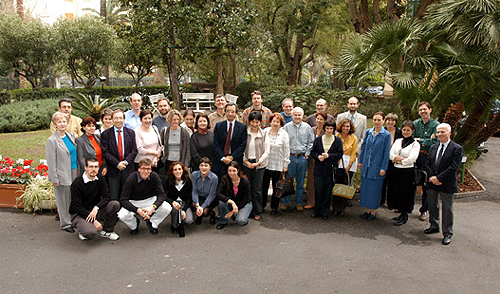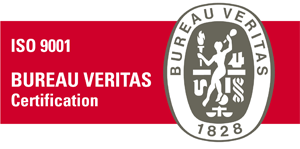Paediatric Rheumatology INternational Trials Organisation (PRINTO)
The Paediatric Rheumatology INternational Trials Organisation (PRINTO) is a not for profit, non governmental, international research network founded by Alberto Martini and Nicolino Ruperto in 1996. Including initially 14 European countries, the organization counts now on the cooperation of 2072 members from 730 centres in 95 countries worldwide. PRINTO has the goal to foster, facilitate and co-ordinate the development, conduct, analysis, and reporting of multi-centres, international clinical trials and/or outcome standardisation studies in children with paediatric rheumatic diseases (PRD).
The coordinating centre is based in Genoa.
To learn more about PRINTO click here
To download the PRINTO brochure click here
The coordinating centre is based in Genoa.
To learn more about PRINTO click here
To download the PRINTO brochure click here
IN THE SPOTLIGHT
-
14-JUN-2024
PRINTO/PRCSG/Pfizer Manuscript on safety and efficacy results of tofacitini...
More details... -
13-MAR-2024
European Workshop for Rheumatology Research (EWRR) - 43rd edition
View website of the event... -
10-DEC-2023
PReS/PRINTO Research Grants | 2023 Call for proposals - by February 15th, 2...
More details... -
14-MAY-2022
PRINTO/PRCSG/Pfizer Tofacitinib manuscript authors'reply published in the L...
More details... -
14-FEB-2022
The MeRITA website has gone live and is now online
More details... -
11-NOV-2021
PRINTO/PRCSG/Pfizer Tofacitinib manuscript published in the Lancet
More details... -
15-MAR-2019
EPOCA manuscript published in Lancet Child Adolesc Health!
Paper details... -
04-FEB-2019
First results of the PRINTO Consensus for new JIA Classification published!
Paper details... -
16-AUG-2018
Consensus proposal for Taxonomy of AIDs: manuscript published on ARD
Paper details... -
24-MAY-2018
Subcutaneous Abatacept in poly JIA Manuscript published in Arthritis & Rheu...
More details...
PROJECTS
-
Learn Moreconect4children (c4c)PRINTO is partner of the "conect4children" (c4c) initiative, the collaborative network for European clinical trials for children, (c4c) a consortium that aims to enhance the competitiveness of Europe as a critical region for developing medicines for children. -
Learn MoreLiaisons with pharmaceutical companiesPRINTO is working with pharmaceutical companies as advisor for trials planning, centre selection, data collection, data analysis and interpretation… -
Learn MoreThe STARS TrialThe comparison of STep-up and step-down therapeutic strategies in childhood ARthritiS trial (STARS) is a new interventional trial aiming to investigate whether an early aggressive therapeutic intervention in children with JIA, based on the initial start of synthetic and biologic DMARDs (Step-down strategy), is superior to an approach based on treatment escalation conducted following the treat-to-target principle (Step-up strategy). -
Learn MoreThe JIA classification studyThe PRINTO Evidence-based Revision of the International League Against Rheumatism (ILAR) Classification criteria for juvenile idiopathic Arthritis. -
Learn MoreThe KIWI studyRetrospective-prospective, observational, descriptive and multicenter study of patients with KD for the comparison and performance of Kobayashi and Kawanet IVIg resistance scores in a multi-centric European and North Indian cohort of Kawasaki disease. -
Learn MoreCEST-JIAThe study is aimed to evaluate, through a pragmatic trial, safety and efficacy of switching from the adalimumab and etanercept originator molecules versus their biosimilar competitors and vice-versa in children with JIA in clinical remission on anti-TNF medication. -
Learn MoreEurofeverThe PReS Autoinflammatory Diseases’ Working Group, in collaboration with PRINTO, set up a a web-based international registry for Autoinflammatory diseases. -
Learn MoreCross-cultural adaptation and validation of LoSQI in JLSCross-cultural adaptation and validation of the Localised Scleroderma Quality of Life Instrument (LoSQI) in juvenile localised scleroderma (JLS) is a multicentre study of the PRES scleroderma working party in collaboration with members of the CARRA scleroderma working group. -
Learn MoreThe METAPHOR projectThe project named "OptiMizing trEatment in systemic juvenile idiopaThic Arthritis (sJIA) and macroPHage activation syndrOme (MAS)/secondaRy hemophagocytic lymphohistiocytosis (HLH), (METAPHOR), is winner of the 2021 PReS/PRINTO call for grants and has the aim to provide an overview of the real-life experience in sJIA and MAS/sHLH treatment through a survey involving the pediatric rheumatology centers part of the PReS/PRINTO networks. -
Learn MoreThe CREATE trialTherapeutic approach in Colchicine-resistant Recurrent pEricarditis in children: an open-label randomized trial comparing Anakinra vs sTEroids -
Learn MorePharmaChildPRINTO and PRES are conducting a pharmacovigilance project which aims at observing children with JIA for 3-10 years undergoing treatment with MTX or biologic agents in order to collect moderate, severe or serious adverse events occurred. -
Learn MoreThe HyperPED-COVID RegistryA joined PReS, ESID, ISSAID, ERN-RITA and PRINTO network’s effort has been started with the aim to buid a registry of children and young adults who have developed serious inflammatory condition in temporal association with COVID-19 in the community. -
Learn MoreThe DAISY studyThe DAISY study (Applicability of standardized ultrasound examination to estimate disease activity in combination with JADAS and inflammation markers in JIA patients) aims to investigate sensitivity and predictive value of the multi-biomarker panel and to evaluate if it could be applied in limited number of joints in patients with oligo and polyarticular JIA course as a new disease activity tool and outcome measure. -
Learn MoreThe MeRITA projectThe MeRITA meta-data registry will collect in aggregated fashion the Common Data Elements (CDEs) of the single participating registries. -
Learn MorePAPA - Can trialA double-blind, placebo-controlled, randomized withdrawal study of canakinumab in pyogenic sterile arthritis pyoderma gangrenosum and acne (PAPA) syndrome
